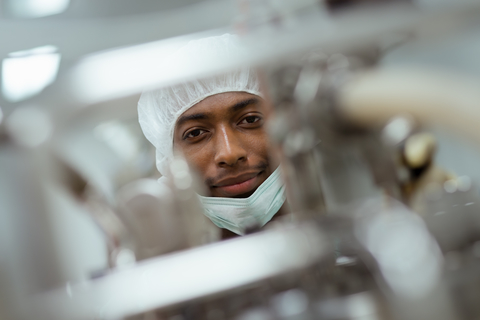Grant secured to design innovative sterilising device

Cardiff Metropolitan University has secured a grant to design an innovative sterilising device for medical equipment.
Cardiff Metropolitan University report they have successfully secured funding to support an interdisciplinary collaboration arising from the Welsh Crucible programme that looks at the design and development of an innovative sterilising device for venous access ports (VAPs).
The interdisciplinary research is a collaboration between Cardiff and Vale University Health Boards All Wales Adult Cystic Fibrosis Centre, Cardiff Metropolitan University’s PDR (the Cardiff Met-based International Centre for Design & Research), the University of South Wales’ Faculties of Business and Society and Computing, Engineering and Science, Cardiff University’s School of Dentistry, and Public Health Wales’ Department of Microbiology.
The project team’s aim is to develop a sterilising device to reduce infections in VAPs for people who require long term and repeated intravenous treatment. A VAP is a small medical device that is implanted under the skin to allow regular and convenient delivery of drugs into the bloodstream without compromising the patients’ veins. The project team will work closely with the Cystic Fibrosis Centre to address an issue faced by both clinicians and patients particularly individuals with cystic fibrosis who use these ports.
One major issue with the existing device is the build up of bacteria and fungus within the port, which can lead to infections, patient morbidity and require surgical removal of the device which can cause pain and discomfort for the patient. Antibiotic treatment is not an effective solution and around 5% of all VAPs fail due to infection. To overcome this issue, the project team aim to develop an innovative prototype device to prevent and clear infections in VAPs. The success of this project could mean better care for patients who use venous access ports and could potentially save the health care system significant sums of money.
Speaking about the project and grant award, Dr Taslima Begum, in her roles as Senior Lecturer in Computing at Cardiff Met and Researcher in User-centred Design at PDR, said “I am thrilled that we have been awarded the research grant. Our aim is to utilise user-centred and co-design methods to develop a novel solution that will help cut down infections in individuals who use venous access ports and as a result, improve the patient’s quality-of-life through better treatment outcomes. It is a fantastic project and I am looking forward to collaborating with some exceptional individuals, organisations and institutions on it.”
Dr Jamie Duckers, Principal Investigator for the project and Consultant in CF and General Medicine at the Cystic Fibrosis Centre, said “We are pleased to have been awarded funding for the Venous Access Port Project. The project considers an issue that many people do not know about but can affect many lives. The outcome of the project could be extremely beneficial to both VAPs users and to the medical industry.”
Dr Mark Bowkett, Senior Research Fellow at the University of South Wales, said “I am delighted to be part of this talented multidisciplinary collaboration, which brings a fresh approach to issues in the medical field. It is exciting to believe these developments could significantly enhance patient’s wellbeing and potentially lead onto other novel solutions in the future.”
In addition to securing the research grant for the VAPs Project, Taslima Begum has also secured funding for two additional pioneering projects, including developing a smart surgical tool for optimal dental implant fixation to reduce failure rates and another for communicating the complexities of climate change through co-designed computer games development.
Speaking about the recent grant successes, Professor Scott Fleming, Director of Research and Graduate Studies at Cardiff Met, said “It is very rewarding to see Cardiff Met succeed in securing prestigious research grants. These successes reinforce the excellence of the research undertaken here and we look forward to seeing the projects develop and having ‘real world’ impact in the future.”








